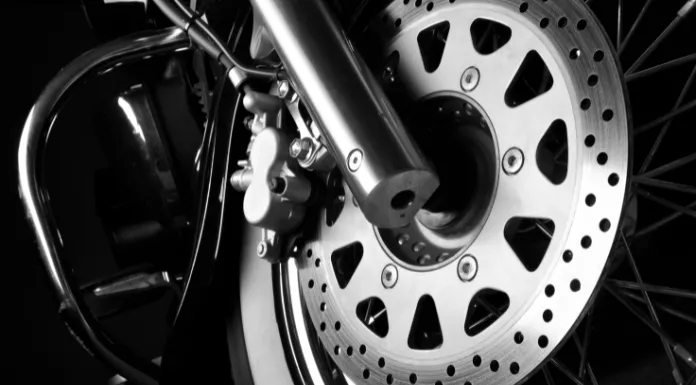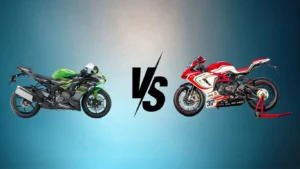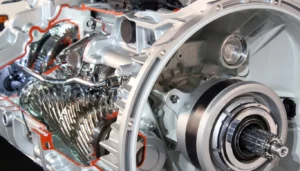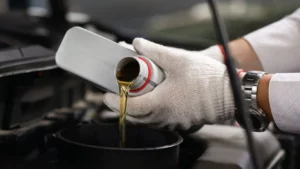To understand just how fast an 80cc engine can go, you’ve come to the right place. Our mission today is to bridge the gap between technical jargon and practical knowledge, all to answer one central question, “How fast is 80cc?”
Engine capacity, measured in cubic centimeters (cc), severely impacts a vehicle’s top speed and overall performance. So, when we talk about an 80cc engine, we are discussing a relatively small powerhouse. But does that mean it’s slow? Or could it surprise us? Let’s find out.
The Need for Speed: Unleashing the Power of an 80cc Engine
If you’re a speed enthusiast, the magic of an 80cc engine might just be what you are seeking. Smaller, lighter, yet power-packed, these engines are engineered to provide a thrilling ride. But just how fast can these machines actually go? Let’s dive in and unlock the potential of 80cc engines!
Unfolding the Potency: Defining Speed in an 80cc Engine
The speed of an 80cc engine is commonly measured in ‘miles per hour’ (mph) or ‘kilometers per hour’ (kph). It’s important to note that the top-speed of an 80cc engine doesn’t solely hinge on its displacement. Factors such as engine design, fuel type, vehicle weight, and aerodynamics can significantly influence the speed.
Understanding 80cc Engine Speed Limits
80cc engines epitomize a unique combination of compactness and power. On average, an 80cc motorcycle engine can reach speeds of 45-50 mph or 72-80 kph. However, this is not a hard and fast rule as various other aspects come into play.
- Vehicle weight: Lighter vehicles are usually faster due to the reduced drag and friction.
- Engine design: Certain engines are optimized for top-end speed, while others may be geared for acceleration.
- Fuel type: The type of fuel used can influence the engine’s performance and speed.
80cc Beyond Motorcycles: Diversification of Use
While 80cc engines are commonly associated with motorcycles, their versatility extends far beyond. These engines are utilized in various applications including but not limited to mopeds, garden equipment, and even small race cars. Each application will demand a different top-speed, largely due to their unique design characteristics and use cases.
Fuel for Thought: How the Choice of Fuel Impacts Speed
Believe it or not, the type of fuel you choose can have a direct impact on your engine speed. Higher octane fuel tends to burn more efficiently, leading to potentially improved engine performance. However, it’s always best to stick to manufacturer guidelines when selecting your fuel to ensure longevity and optimal performance of your 80cc engine.
80cc: Small But Mighty
Packed with power in a small package, an 80cc engine is a marvel of mechanical engineering. Despite its compact size, expect from its vigorous performance on the move, a real testimony to the phrase ‘small but mighty’. However, to truly harness this power and all that it implies, it’s important to grasp what lies beneath the surface. Let’s delve deeper into it.
Decoding an 80cc Engine
Typically found in lightweight vehicles/machines like motorcycles, scooters, or mopeds, an 80cc (cubic centimeters) engine is the measure of its engine displacement—the total volume of all the cylinders in an engine. Despite its small size, it’s robust enough to power the vehicle, providing sufficient speed and efficiency for urban commuting and light recreational activities.
Speed Parameters: How Fast Can It Go?
Generally, an 80cc engine can achieve speeds of up to 45-50 mph (miles per hour), depending upon various factors like the weight of the vehicle, the type of terrain, and the user weight. It’s important to remember, however, that these engines are not designed for high-speed action; the focus is on a balance of speed, power, and fuel efficiency.
Using the Power Wisely
One significant aspect to note here is that an 80cc engine, while powerful, needs to be operated judiciously. Over-revving or straining the engine beyond its capacity can cause excessive wear, pushing it beyond its limitations can lead to compromises on longevity and performance. It’s always about using the power wisely.
The Role of Fuel Efficiency
Fuel efficiency plays a crucial role in an 80cc engine’s performance. Engines at this size often provide a balance between power and fuel efficiency, allowing for a more economical operation. Swapping regular gasoline for high-octane fuel, for example, can give a slight boost to the performance; however, the difference isn’t significantly tangible, especially on these smaller engines.
Pushing the Limits: How Fast Can an 80cc Engine Go?
When examining the speed capabilities of an 80cc engine, it’s essential to keep in mind that it’s a complex determination subject to various factors. Elements like the vehicle’s weight, rider mass, and even the type of fuel used can significantly influence the speed capabilities of an 80cc engine.
Decoding the Complexities of Speed
Under optimal conditions, an 80cc engine can reach speeds roughly between 45 to 50 miles per hour. However, many variables can affect this target, such as the terrain’s inconsistency and the vehicle’s aerodynamics. As the engine size increases, so does the potential power output, but there’s a direct correlation between this power and other determinants that can either enhance or hinder speed.
Sensitivities to Weight and Riding Conditions
The total weight that the engine must move directly impacts the speed, too. Heavier loads require more power to move at the same speed as lighter ones. Similarly, different riding conditions, including paved roads and off-road trails, substantially influence an 80cc engine’s speed. Broadly speaking, these engines can yield faster speeds on paved roads because there’s less resistance.
Fuel Type: An Overlooked Factor
The type of fuel used can be a gamechanger for engine speed. High-octane fuels typically burn more efficiently and yield more power than their lower-octane counterparts. By ensuring your 80cc engine runs on a high-quality fuel, you stand a better chance at tapping into its top speed capabilities.
In a Nutshell
Each 80cc engine’s speed capabilities are tailor-made by individual parameters like weight, terrain, and fuel. However, with ideal conditions, you can expect your 80cc engine to deliver speeds between 45 to 50 miles per hour. Always remember that taking proper care of the engine and using a suitable fuel can significantly enhance its performance.
A Closer Look at Engine Displacement: Understanding the Relationship with Speed
Unlocking the mysteries of engine displacement, like that of the 80cc engine, leads us to the core connection between displacement and speed. Displacement refers to the volume of air-fuel mix an engine can draw in during one complete cycle. In other words, it’s all about how much “breathing room” your engine has. But just how does this breathing room influence the speed of the engine?
Deciphering Engine Displacement
The displacement of an engine is typically measured in cubic centimeters (CCs) or liters. Higher displacement engines, with more cubic centimeters or liters, have more room for air and fuel. This larger air-fuel capacity can lead to increased power output and therefore, higher speed. Conversely, small displacement engines, such as 80cc engines, have less room for air-fuel mixture but are designed for efficiency rather than sheer power. Understanding this fundamental principle helps us unravel how displacement inherently influences speed.
Relating Displacement to 80cc Engine Speed
An 80cc engine, with its smaller displacement, might not reach the significant speeds of its higher displacement counterparts. However, the actual speed also relies on differing factors like the engine design and vehicle weight. Considering its small size and efficiency, an 80cc engine still has some notable speed potential, often reaching speeds of around 30-40mph.
Optimizing Speed in 80cc Engines
Even though 80cc engines are generally designed with efficiency in mind, that doesn’t mean their speed potential should be overlooked. Making minor modifications, like improving air intake, refining the fuel mixture, or reducing the weight of the vehicle, can help optimize the speed capabilities of these engines. Keep in mind, though, that these modifications should always adhere to the safety regulations and guidelines associated with the specific engine model and type.
Revving Up: Unveiling the Top Speed Potential of an 80cc Engine
When it comes to unleashing the raw power of an 80cc engine, speed is one of the prime aspects that garners attention. But remember, establishing the top speed potential of this engine doesn’t only lie in the engine’s capacity. It intertwines with a series of factors including the fuel type, weight load, engine design, and the conditions under which you’re riding. Now, let’s rev up and delve deeper into the details.
1. Engine Design and Top Speed
Understanding the design characteristics of an 80cc engine can help offer insights into its top speed capabilities. Elements such as the bore and stroke ratio, valve setup, and compression ratio influence the engine’s power output, thus impacting speed. Upgraded components like high-flow exhausts can also aid in enhancing the speed limit.
2. The Weight Factor
Weight is another pivotal factor when it comes to the maximum speed of an 80cc motor. Heavier loads can slow down your vehicle, while lighter ones can increase its speed. A rider’s weight combined with any additional load greatly influences the engine’s overall performance and top speed.
3. Riding Conditions
Your engine’s top speed won’t be the same on a straight, paved road as it would in a hilly or undulating terrain. Environmental factors including wind direction and strength, temperature, and altitude also have noticeable effects on your 80cc vehicle’s speed.
4. Fuel Type and Engine Efficiency
The type of fuel you choose can significantly impact the performance and speed of your 80cc engine. High-quality fuels usually facilitate better combustion, leading to more power and speed. Plus, fuel efficiency is closely linked to speed, as a more efficiently running engine can reach higher speeds.
5. Pushing the Performance Boundaries
The top speed of the standard 80cc engine usually ranges somewhere between 45 to 50 miles per hour. But with a few optimizations like using performance-grade fuel, maintaining optimum engine conditions, and managing the weight load, you can potentially push this speed limit even further!
The Thrill of the Ride: Experiencing the Speed of an 80cc Engine
When assessing the biting speed of an 80cc engine, one might simply ask, “how fast can it really go?” The answer to this compelling question isn’t that straightforward. It hinges upon numerous factors, including the engine design, the weight it’s hauling, the conditions of the ride, and even the fuel type in use. This journey of exploration into the heartbeat of an 80cc engine will not only quench your curiosity but also guide you to optimize your riding experience.
Anatomy of an 80cc Engine
Before zooming into the lightning-fast aspect of an 80cc engine, let’s take a moment to understand its design. The “80cc” stands for “cubic centimeters,” a unit that measures an engine’s cylinder displacement – the space available for fuel and air to ignite and provide wheel-spinning power. Smaller engines like the 80cc generally have a reputation for resilience and rev happy nature, with a good power-to-weight ratio. But, nonetheless, they are not exclusively designed for breakneck speeds.
The Weight Puzzle and Speed
Weight is a notorious speed limiter for most engine types, and the 80cc engine makes no exception. The heavier the load the engine needs to propel, the lower the top speed achieved. It’s a simple justice of physics! Hence, keeping an optimal weight balance can help your engine deliver its top performance.
Navigating Riding Conditions
In the world of engine performance, riding conditions occupy a significant place. The terrain you choose to ride on, the atmospheric pressure, and even the wind speed can sway the speed potential of your 80cc engine. Being aware of these conditions allows you to optimize your speed and safety.
Fueling Speed: The Role of Gasoline
A less obvious contender in the speed equation is the type of fuel used. Higher octane fuels can withstand higher compression before ignition, allowing an engine to extract more power and speed. So, choose your fuel wisely to fuel up not just your engine, but also its speed!
Pumping-Up the Velocity: Optimizing 80cc Engine Speed
While it might not be designed as a speed demon, making certain adjustments can help an 80cc engine see some Huston, we’re in the lift-off territory! From reducing weight, optimizing fuel, and adapting ride style according to riding conditions, optimizing an 80cc engine speed turns out to be both an art and a science.
80cc Engines: Not Just for Motorcycles
While 80cc engines are most well-known for their use in motorcycles, they’re actually exceedingly versatile. They’ve become increasingly popular in a variety of spheres, from powering lawn tools to furnishing go-karts. True to their compact size, 80cc engines pack a surprising amount of power, proving that performance isn’t just about size.
Mowing Down the Competition: 80cc Engines in Lawn Tools
It may seem unconventional, but 80cc engines have been finding their way into the tool sheds of many homeowners. These engines now frequently power lawn equipment like weed trimmers, chainsaws, and leaf blowers. The reason? Their light weight and impressive power output make for an ideal combination, allowing for efficient work without the unnecessary strain.
Go-Carts and Mini Bikes: The Smaller Side of Fun
The love for speed and fun doesn’t always require a full-sized motorcycle. Mini bikes and go-carts powered by 80cc engines provide an exhilarating way of experiencing the thrill. Agile and quick, these small vehicles powered by 80cc engines make for a fantastic amusement option, whether at an adventure park or even in your backyard.
Farming Equipment: An Unexpected Ally
It’s not just the realm of leisure where these engines show their versatility. Some small-scale farming equipment also relies on the power of an 80cc engine. Small plows, irrigation equipment, and seed spreaders have greatly benefited from these compact yet capable engines, making farming activities more efficient.
A Glimpse Into the Future: Electric Generators and More
80cc engines are not only transforming present-day applications but also aiding in constructing a more sustainable future. Portable electric generators are often equipped with these engines, providing a reliable power source during power outages or in remote areas. Furthermore, they’re also being explored for use in future micro-mobility solutions, such as compact, eco-friendly vehicles.
The Science of Speed: How Engine Design Affects Performance
When it comes to understanding the speed of an 80cc engine, multiple factors come into play, and one of the most significant is its design. The engine design plays a significant role in determining the speed and performance of the engine itself. But how does an engine design affect speed and efficiency? Let’s delve deeper into this fascinating topic.
The Fundamental Science of Engine Design
Before discussing the specific effect of engine design, you must first understand its basics. Engine design refers to various elements such as the configuration of the cylinders, the fuel injection mechanism, the arrangement of the pistons, and so on. Each of these elements contributes differently to the performance of the engine. They work in synergy to maximize the power output and thus, speed.
Role of Cylinder Configuration
Cylinder configuration in an 80cc engine can significantly affect its speed. For example, engines with in-line cylinders are often more balanced and produce less vibration. This can improve the efficiency of the engine, thus enhancing speed. On the other hand, V-configuration cylinders might provide more power, which can also lead to an increase in speed.
Impact of Fuel Injection Mechanism
Modern 80cc engines employ sophisticated fuel injection mechanisms for optimized performance. Fuel injection plays a pivotal role in controlling the amount of gas entering the engine, affecting the speed to a great extent. A well-tuned fuel injection can boost speed by ensuring that the engine receives the right amount of fuel at the right time.
The Importance of Piston Arrangement
The piston arrangement directly influences the overall balance and operational smoothness of the engine. A well-balanced engine tends to run smoothly, reducing stress on the engine components and thus maximizing its lifespan. Moreover, a more fluent operation often translates into better speed and performance.
Conclusion
Engine design, undoubtedly, plays a pivotal role in dictating the speed of an 80cc engine. By understanding the factors that contribute to engine design, you can better appreciate the complexities involved in engine speed and performance. And while each 80cc engine may differ slightly in design, the principles outlined above remain fundamental to their operation and speed.
Fueling the Fire: The Role of Fuel Type in Speed
When we talk about the speed capabilities of an 80cc engine, it’s important to acknowledge that the choice of fuel plays a significant part in this equation. Good fuel not only improves the engine’s performance but can also provide a noticeable boost in speed. Now, let’s dive deep into how the type of fuel influences the speed and overall performance of an 80cc engine.
The Chemistry Behind Fuel Types
Different fuels have distinct chemical compositions, which influence the energy they can release when combusted. High-quality fuels, such as premium gasoline, usually have more energy-rich compounds that provide a more potent combustion, leading to increased engine power and consequently, higher speed.
Fuel’s Role in Engine Efficiency
Engine efficiency is pivotal for speed. Fuel rich in energy allows the engine to extract more power per unit, enhancing its efficiency. As a result, engines work smoother, wear less, and can pump out more speed on the track.
Gasoline versus Ethanol:
A Comparison The type of fuel can significantly affect an 80cc engine’s speed potential. Gasoline, for instance, has a high energy content, making it an excellent choice for maximum speed. On the contrary, ethanol, though renewable, has a lower energy density, which might result in reduced speed potential.
Optimizing Fuel Use for Maximum Speed
The fuel you feed your 80cc engine also plays a key role in reaching its top speed potential. By optimizing your fuel use, you can ensure your engine doesn’t just run, but races to its peak performance. Higher quality fuels not only increase the engine’s efficiency but also minimize wear and tear, thereby prolonging its lifespan.
Remember, using premium or high-octane fuel does not automatically lead to higher speeds. The efficiency and performance closely relate to how well the engine utilizes the fuel. Therefore, it’s important to understand and use the correct fuel type that your 80cc engine works best with, to keep it thrilling your rides with maximum speed for years to come.
Conclusion
In summary, the speed of an 80cc engine is influenced by numerous factors, including its design, weight restrictions, riding conditions, and the type of fuel used. Understanding these parameters can assist in maximizing the speed and capability of 80cc engines. Speed is not just a function of engine displacement, but also results from the clever optimization of all these aspects.
Beyond motorcycles, 80cc engines have found utility in diverse applications such as lawn tools, mini bikes, farming equipment, and even generators, underlining their efficacy. So, remember that these small but mighty engines offer more than just speed – they represent innovation and versatility.






